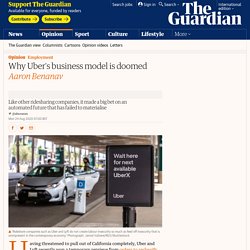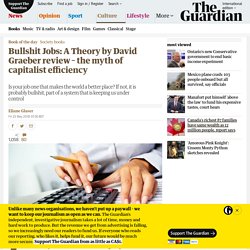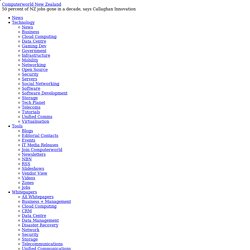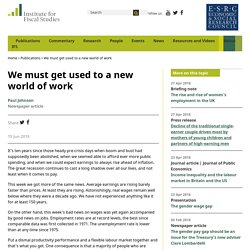

Why Uber's business model is doomed. Having threatened to pull out of California completely, Uber and Lyft recently won a temporary reprieve from orders to reclassify their drivers as employees rather than independent contractors.

The companies argued they could not come up with a plan for doing so overnight, even though more than two years have passed since California’s supreme court ordered them to change their ways. The Californian labour law AB5 was supposed to end their non-compliance. One might assume that misclassifying drivers as independent contractors enables rideshare companies such as Uber to make exorbitant profits. The reality is far weirder. In fact, Uber and Lyft are not making any profits at all. The truth is that Uber and Lyft exist largely as the embodiments of Wall Street-funded bets on automation, which have failed to come to fruition. In slow-growing economies, labour markets are weak. Poi and Wellbeing. Transforming the Future Sport case study. The future of work speech by mark carney slides. The future of work speech by mark carney. Salman Khan: Let's use video to reinvent education. TED Talk Subtitles and Transcript.
STRIKE! Magazine – On the Phenomenon of Bullshit Jobs. In the year 1930, John Maynard Keynes predicted that, by century's end, technology would have advanced sufficiently that countries like Great Britain or the United States would have achieved a 15-hour work week.

There's every reason to believe he was right. In technological terms, we are quite capable of this. And yet it didn't happen. Instead, technology has been marshaled, if anything, to figure out ways to make us all work more. In order to achieve this, jobs have had to be created that are, effectively, pointless. Why did Keynes' promised utopia—still being eagerly awaited in the '60s—never materialise? So what are these new jobs, precisely? These are what I propose to call ‘bullshit jobs’. It's as if someone were out there making up pointless jobs just for the sake of keeping us all working. The answer clearly isn't economic: it's moral and political.
Bullshit Jobs: A Theory by David Graeber review – the myth of capitalist efficiency. I had a bullshit job once.

It involved answering the phone for an important man, except the phone didn’t ring for hours on end, so I spent the time guiltily converting my PhD into a book. I’ve also had several jobs that were not bullshit but were steadily bullshitised: interesting jobs in the media and academia that were increasingly taken up with filling out compliance forms and time allocation surveys. I’ve also had a few shit jobs, but that’s something different. Toilets need to be cleaned. Shift The Commission on Work, Workers & Technology. 50 percent of NZ jobs gone in a decade, says Callaghan Innovation - Computerworld New Zealand. The CEO of New Zealand Government high-tech support agency Callaghan Innovation, Vic Crone says around half of New Zealand jobs will disappear in the next decade and unless these are replaced with high tech jobs, New Zealand’s economy will become “irrelevant”.

Her warnings have been published in the first of what Callaghan Innovation says will be regular annual reports on New Zealand business innovation to “accelerate conversation in New Zealand about innovation and investment in R&D” and “challenge New Zealand businesses to ride the technology wave.” “Like every other country in the world, New Zealand faces a tsunami of technological change,” the report says. “How we successfully ride that wave is up to our business and industry sectors.”
“Tech is New Zealand’s third-biggest export sector, bringing in more than $16 billion a year in overall revenue,” she says, “What this sector needs to expand is more brains, more ideas and more capital to bring those ideas to market.” 2018 Top Ten Business Intelligence Trends. Who Really Stands to Win from Universal Basic Income? WorkingPapers106. Impact of automation on jobs Feb 2018. Megatrends web version. We must get used to a new world of work. It’s ten years since those heady pre-crisis days when boom and bust had supposedly been abolished, when we seemed able to afford ever more public spending, and when we could expect earnings to always rise ahead of inflation.

The great recession continues to cast a long shadow over all our lives, and not least when it comes to pay. This week we got more of the same news. Average earnings are rising barely faster than prices. At least they are rising. Astonishingly, real wages remain well below where they were a decade ago. On the other hand, this week’s bad news on wages was yet again accompanied by good news on jobs. Put a dismal productivity performance and a flexible labour market together and that’s what you get. Poor productivity is at the root of much of this but it’s not the whole story. This big expansion in self- employment is partly driven by the expansion of the so-called gig economy.
It may also be that this picture of very high levels of employment is a bit misleading. MGI Jobs Lost Jobs Gained Report December 2017.